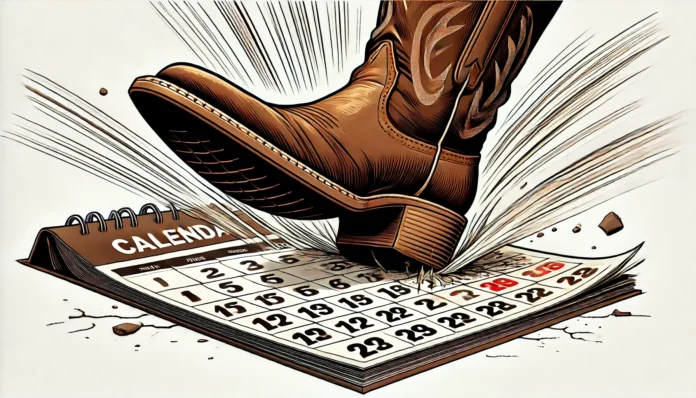Texas Senate Approves Bill Requiring Christian Date Labels in Public Schools
On May 23, 2025, the Texas Senate passed Senate Bill 2617 (SB 2617), a measure that would require all public schools in the state to use the date labels B.C. (Before Christ) and A.D. (Anno Domini) in instruction and curriculum materials, replacing the more secular C.E. (Common Era) and B.C.E. (Before Common Era) designations.
Key Provisions of SB 2617
- Mandatory Use of B.C./A.D.: The bill stipulates that all public school instruction and curriculum materials must use B.C. and A.D. when referencing historical dates.
- Ban on C.E./B.C.E.: Schools would be prohibited from purchasing or using materials that employ the C.E. or B.C.E. labels.
- Textbook Selection Impact: The legislation could significantly affect the selection of textbooks and other educational resources, especially those used in Advanced Placement (AP) courses, which often use the secular date labels.
Legislative Progress and Vote
The bill passed the Texas Senate with a 22-9 vote and now moves to a House committee for further consideration. If enacted, Texas would become one of the few states with such a mandate regarding historical date notation in public education.
Supporters: Preserving Tradition
Supporters of SB 2617, including the bill’s sponsor, argue that the measure is intended to protect what they describe as traditional teaching methods. They contend that B.C. and A.D. have been used for centuries and that the shift to C.E. and B.C.E. is unnecessary and erodes historical continuity.
Critics: Concerns Over Religious Influence
Opponents of the bill, including secular advocacy groups and some educators, argue that requiring the use of B.C. and A.D. injects religious language into public education, potentially violating the separation of church and state. They also warn that the bill could complicate the adoption of widely used textbooks and materials, particularly for AP and college-preparatory courses that follow national standards.
The terms Common Era (CE) and Before Common Era (BCE) originated as secular alternatives to the traditional Christian designations Anno Domini (AD) and Before Christ (BC). While “Anno Domini” (Latin for “in the year of our Lord”) and “Before Christ” were introduced in the 6th century by the monk Dionysius Exiguus and later popularized in Western Europe, the BCE/CE system emerged in scholarly circles during the 17th century, primarily among Jewish academics who sought a dating method that acknowledged the same calendar years without affirming Christian theology. The use of “Common Era” was first recorded in English in the early 1700s.
The widespread adoption of BCE and CE accelerated in the 20th century, especially in academic, scientific, and interfaith contexts, as a way to promote religious neutrality and inclusivity in historical scholarship. Today, BCE and CE are used by historians, archaeologists, educators, and major style guides (such as the Chicago Manual of Style) to reflect a universal chronology without centering Christianity. The shift is largely stylistic, as both systems reference the same Gregorian calendar; the difference lies in tone and sensitivity to diverse audiences.
Potential Impact on Students and Schools
Education experts note that the bill could create challenges for school districts, teachers, and students. Textbook publishers may need to produce Texas-specific editions, and students preparing for national exams could face inconsistencies between classroom instruction and test materials. The proposal has prompted responses from a range of stakeholders, including educators, parents, and advocacy organizations.
Next Steps
SB 2617 is currently under review in a House committee. If it advances and is signed into law, Texas public schools would be required to comply with the new date labeling standards in all instructional materials.
For more details, see the original source: https://www.friendlyatheist.com/p/texas-senate-passes-bill-to-force

